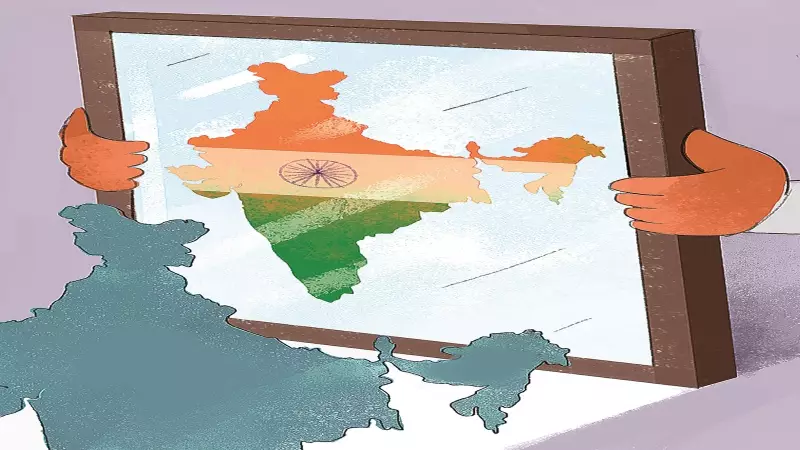
Nehru's Timeless Message to Modern India
On what would be his birth anniversary, India's first Prime Minister Jawaharlal Nehru addresses contemporary citizens through a powerful reflection on the nation's democratic journey. Writing from beyond time, Nehru emphasizes that the India conceived by its founders was envisioned as a moral project rather than merely a political entity.
The world has undergone dramatic transformations since independence, yet Nehru observes that India's fundamental questions remain unchanged: What is the true purpose of power? What kind of nation are we building together?
The Foundation of India's Democracy
Nehru recalls his historic address to the Constituent Assembly on December 13, 1946, where he championed the cause of "the fullest democracy." This vision encompassed not just political rights but substantive commitments to economic democracy, social justice, and equality before law.
These principles formed the weight-bearing foundation stones of the republic, with liberty, equality, and fraternity serving as guiding lights. India was imagined as a moral compass for South Asia and the wider world, where debate strengthened democracy rather than threatened it.
Today, Nehru expresses concern about the weaponization of religion and identity for political division. He notes the increasingly harsh language dominating public discourse and elections that appear to prioritize exclusion over inclusion.
Lessons from History's Darkest Chapter
The traumatic memory of Partition serves as a stark warning. An estimated 15 million people crossed borders during Partition, with death toll estimates ranging from 200,000 to 2 million. Trains arrived carrying the dead, families were destroyed, and neighbors became enemies.
The assassination of Mahatma Gandhi on January 30, 1948, by Nathuram Godse represents another profound tragedy. Godse, associated with the RSS and Hindu Mahasabha, expressed no remorse for killing the man who preached Hindu-Muslim unity.
Those who witnessed these horrors swore that politics would never again exploit faith or community. B.R. Ambedkar built the republic upon Gandhi's ideal of unity in diversity, while Rabindranath Tagore warned that nations shackled by fear lose their creative soul.
The True Test of Democratic Values
Nehru emphasizes that economic progress and global prestige, while valuable, cannot substitute for social harmony. "A nation that grows materially while decaying morally walks on fragile ground," he cautions.
During the first General Elections of 1951-52, Nehru travelled 25,000 miles and addressed 35 million people - approximately one-tenth of India's population at that time. A British newspaper noted that "if ever a country took a leap in the dark toward democracy, it was India."
This leap succeeded because India chose inclusion over exclusion, dialogue over division, and restraint over revenge. Democracy is ultimately tested by how it treats those who think differently, worship differently, or look different.
In his famous "Tryst with Destiny" speech on the eve of Independence, Nehru declared that all Indians, regardless of religion, are equally children of India with equal rights, privileges, and obligations. He warned against communalism and narrow-mindedness, stating that no nation can be great whose people are narrow in thought or action.
History, Nehru concludes, will not remember who outshouted whom during election campaigns. Instead, it will remember those who dared to rise above division, protected the weak, and held firm to the values that safeguard India's civilizational soul.
The republic built by India's founders wasn't perfect, but they endeavored to ensure every citizen felt a sense of belonging regardless of faith, caste, region, or language. They tried to make democracy mean something more than majority rule - they tried to make it mean dignity, fairness, and opportunity.
This remains the inheritance that modern India received and the trust that current generations must preserve.





